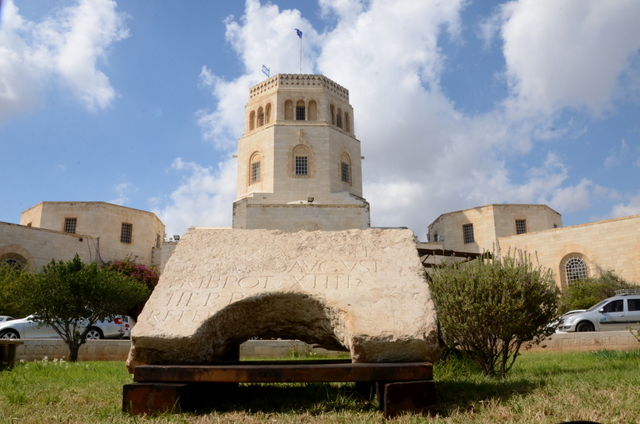On October 26, 1994, Israeli Prime Minister Yitzhak Rabin and Jordanian Prime Minister Abdel Salam Majali signed a peace treaty in a desert area of Wadi Araba on the Israeli-Jordanian border. U.S. President Bill Clinton was one of more than 4,500 guests at the ceremony; Egyptian President Hosni Mubarak and Palestine Liberation Organization leader Yasser Arafat were among the absentees (Mr. Mubarak wasn't on friendly terms with Jordan, and Mr. Arafat wasn't invited). See also here and here. On October 27, Mr. Clinton went to Syria and met with Syrian President Hafez al-Assad, hoping to promote progress in peace talks between Syria and Israel.
On October 28, 1974, 20 year earlier almost to the day, a conference in Rabat, Morocco of the heads of state of 20 Arab nations, including King Hussein of Jordan, unanimously called for the creation of an independent Palestinian state "on any Palestinian land that is liberated" from Israeli occupation. The Arab leaders also recognized Palestine Liberation Organization leader Yasser Arafat as the "sole legitimate representative of the Palestinian people." The next day, during the final moments of the conference, the nations agreed on a four-year, multi-billion-dollar program to aid the PLO, Egypt, Syria, and Jordan--the three countries bordering on Israel--with funds to be provided by the Arab oil-producing countries.
On October 26, 2004, 10 years to the day after the signing of the peace treaty with Jordan, the Israeli Knesset voted 67-25 in favour of Prime Minister Ariel Sharon's proposal to remove settlements and soldiers from the Gaza Strip and part of the West Bank.
Simon the Magician and His Beliefs
-
There is always a cost when we believe wrongly. For example, “I deserve
to be blessed.” Instead, God will humble the proud, like Simon the magician
who...
5 hours ago






































